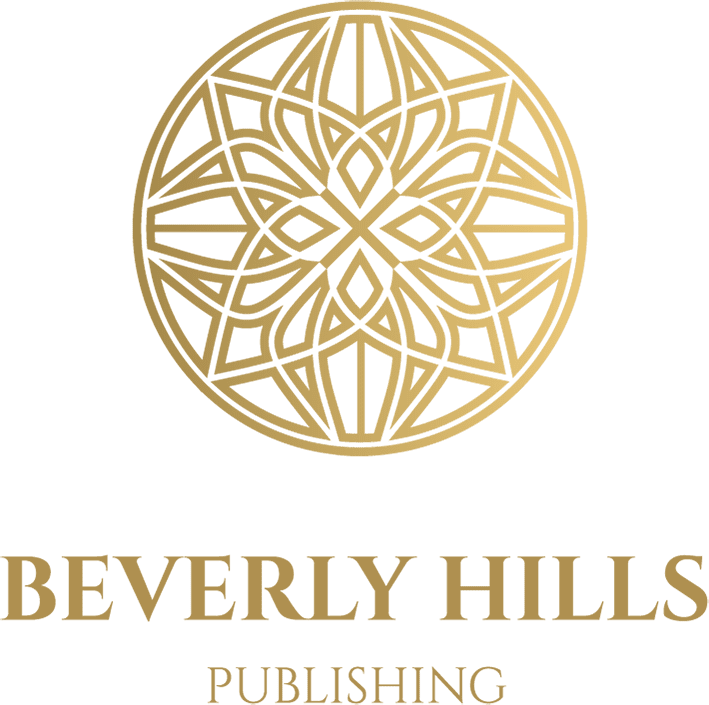At Beverly Hills Publishing, we know that creating the best book marketing campaigns is essential for authors to reach their target audience and boost sales. Effective marketing strategies can make the difference between a book that languishes on shelves and one that becomes a bestseller.
In this blog post, we’ll share our expertise on how to craft and execute powerful book marketing campaigns that deliver results. From understanding your audience to leveraging various promotional channels, we’ll guide you through the process of creating a successful marketing strategy for your book.
Who Is Your Book’s Ideal Reader?
Uncover Reader Demographics
Start your research on potential readers. Use Facebook Audience Insights to collect data on age, gender, location, and interests of people who engage with similar books. Facebook Audience Insights gives you aggregate information about two groups of people-people connected to your Page and people on Facebook. For a young adult fantasy novel, you might discover that your core audience consists of women aged 18-24 who also enjoy video games and anime.
Create Detailed Reader Profiles
Move beyond basic demographics and develop comprehensive profiles of your ideal readers. What problems do they face? What drives them? Which other books do they read? A reader of your business leadership book could be a 35-year-old middle manager named Sarah (struggling to advance her career) who reads self-help books during her commute.
Analyze Your Competition
Examine the marketing strategies of successful authors in your genre. Which social media platforms do they use most? What type of content resonates with their followers? A romance author might find that Instagram reels featuring book quotes perform well, while a non-fiction author might see more engagement with LinkedIn articles discussing industry trends.
Gather Ongoing Feedback
Understanding your audience requires continuous effort. Collect feedback from your readers through surveys, social media interactions, and book reviews. This process will help you refine your marketing approach and connect more effectively with your target readers.
Adapt Your Strategy
As you learn more about your audience, adjust your marketing tactics accordingly. If you discover that your readers prefer audiobooks, consider creating an audio version of your book. If they’re active on a specific social media platform, focus your efforts there. Your marketing strategy should evolve as your understanding of your audience deepens.
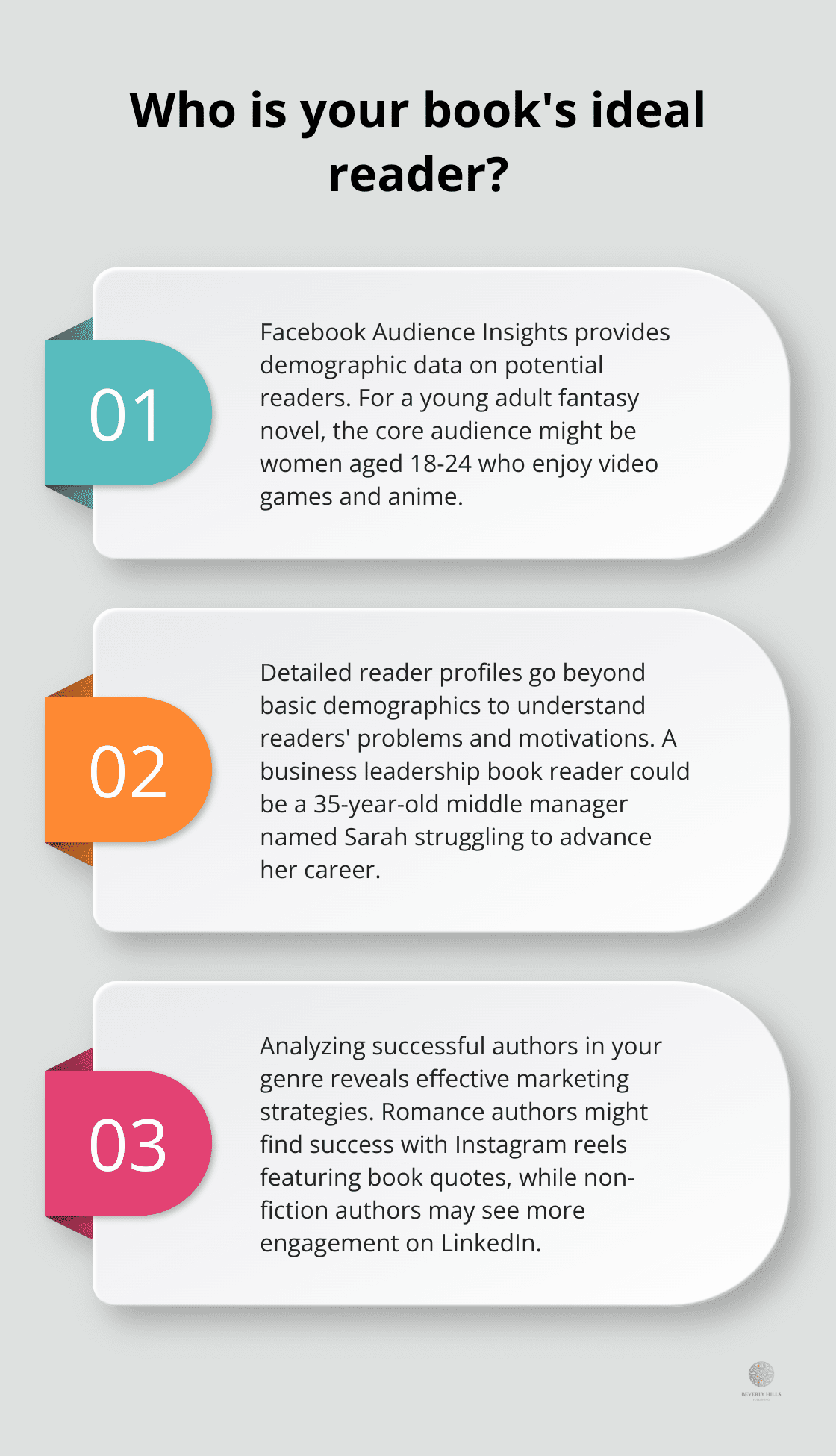
With a clear picture of your ideal reader, you can now move on to developing effective book marketing strategies that will resonate with your target audience.
Proven Strategies for Book Marketing Success
Harness the Power of Social Media
Social media platforms offer excellent opportunities for book promotion. Authors should ask themselves who they are writing for, find a consistent voice, and develop a strategy for each platform. Instagram excels at visual content. Authors should post attractive graphics of their book covers, share quotes, and use Instagram Stories to offer readers a glimpse into their writing process. Twitter provides a platform to connect with potential readers and fellow authors through hashtags like #WritingCommunity or #amwriting.
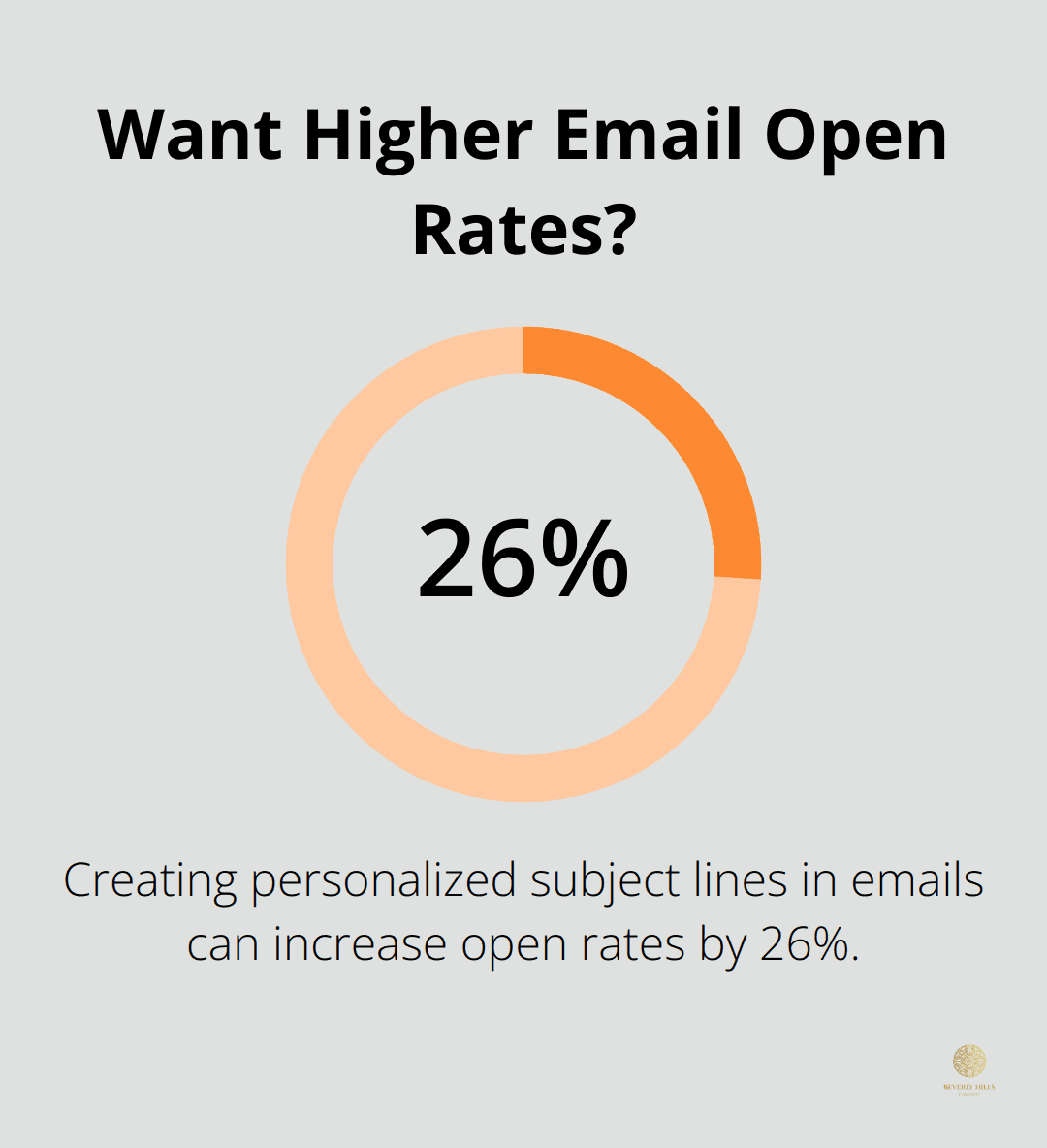
Facebook Groups also prove effective. Authors should join groups related to their book’s genre or topic and participate in meaningful discussions. Providing value to the community (rather than just promoting the book) can lead to significant follower growth.
Build a Robust Email List
Email marketing remains one of the most direct ways to reach readers. Authors should start building their list early, even before book publication. Offering a free chapter or exclusive content in exchange for email sign-ups can accelerate list growth. Tools like MailChimp or ConvertKit help manage lists and send regular newsletters.
Creating personalized subject lines in emails can increase open rates by 26%. List segmentation based on reader interests allows for more targeted content delivery.
Collaborate with Influencers and Bloggers
Partnerships with influencers and book bloggers can expand an author’s reach considerably. Authors should research influencers in their genre and reach out with personalized pitches, offering advance review copies or exclusive interviews. These collaborations can lead to substantial sales spikes.
Micro-influencers (those with 1,000-100,000 followers) often have highly engaged audiences and can be more affordable to work with, making them valuable partners for authors with limited budgets.
Optimize for Search Engines
SEO plays a vital role in book discoverability. Authors should use relevant keywords in their book descriptions on Amazon and other online retailers. Creating content around these keywords on an author website or blog drives organic traffic and establishes authority in the field.
An effective tactic involves writing blog posts that answer common questions related to the book’s topic. This approach not only improves SEO but also positions the author as an expert in their niche.
Implementing these strategies consistently and creatively can significantly boost a book’s visibility and sales. The next section will explore how to measure and optimize these marketing efforts for maximum impact.
How to Measure and Optimize Your Book Marketing Efforts
Set Clear and Specific Goals
Define concrete, measurable objectives for your book marketing campaign. Try to create specific targets like “sell 1,000 copies in the first month after launch” instead of vague goals such as “increase book sales.” This precision enables you to track progress effectively and modify your strategies as needed.
Select Relevant Key Performance Indicators
Choose Key Performance Indicators (KPIs) that align with your goals. These metrics can help track and guide your campaigns, both for sales conversion and brand awareness. For author platform building, monitor metrics like website traffic, email list growth, and social media engagement. Sales-focused campaigns should track Amazon sales rank, conversion rates from your author website, and total units sold across all platforms.
Utilize Powerful Analytics Tools
Employ Google Analytics to monitor your website performance. It offers valuable insights into visitor behavior, popular content, and traffic sources. Social media platforms provide built-in analytics that display post reach, engagement rates, and audience demographics.
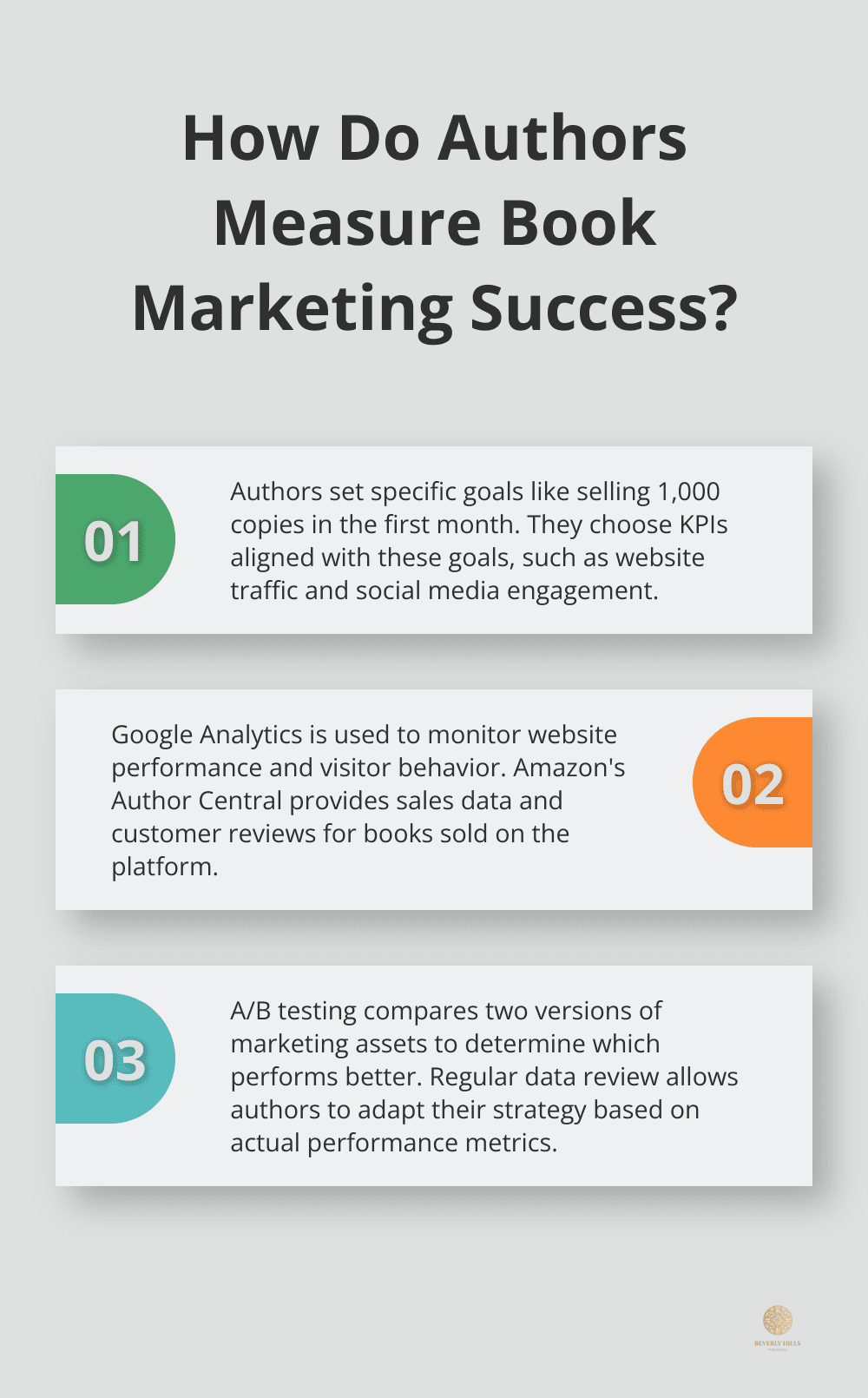
Amazon’s Author Central supplies sales data and customer reviews (essential for understanding your book’s performance on the platform). Tools like Book Report can aggregate data from multiple platforms, providing a comprehensive view of your sales across different channels.
Conduct A/B Testing for Optimization
A/B testing, also known as split testing, is a method of comparing two versions of a marketing asset to determine which performs better. You might test two different Facebook ad images to determine which generates more clicks. This method allows you to refine your marketing materials based on actual data rather than assumptions.
Adapt Your Strategy Based on Data
Review your performance data regularly and prepare to adjust your strategy. If you notice low engagement on Twitter posts but high popularity of Instagram stories, shift more efforts to Instagram. Similarly, if certain types of content (such as behind-the-scenes writing updates) resonate more with your audience, produce more of that content.
Effective book marketing requires continuous testing, measuring, and refining. Consistent analysis of your efforts and adjustment of your approach will enable you to create increasingly effective campaigns that connect with your target audience and drive book sales.
Final Thoughts
The best book marketing campaigns combine audience understanding, effective promotion, and continuous refinement. We implement thorough market research, develop reader personas, and analyze competitor strategies to create a solid foundation. Our team leverages social media, email marketing, and influencer collaborations to boost book visibility and reach. We measure campaign performance through analytics tools and adjust strategies based on data-driven insights for long-term success.
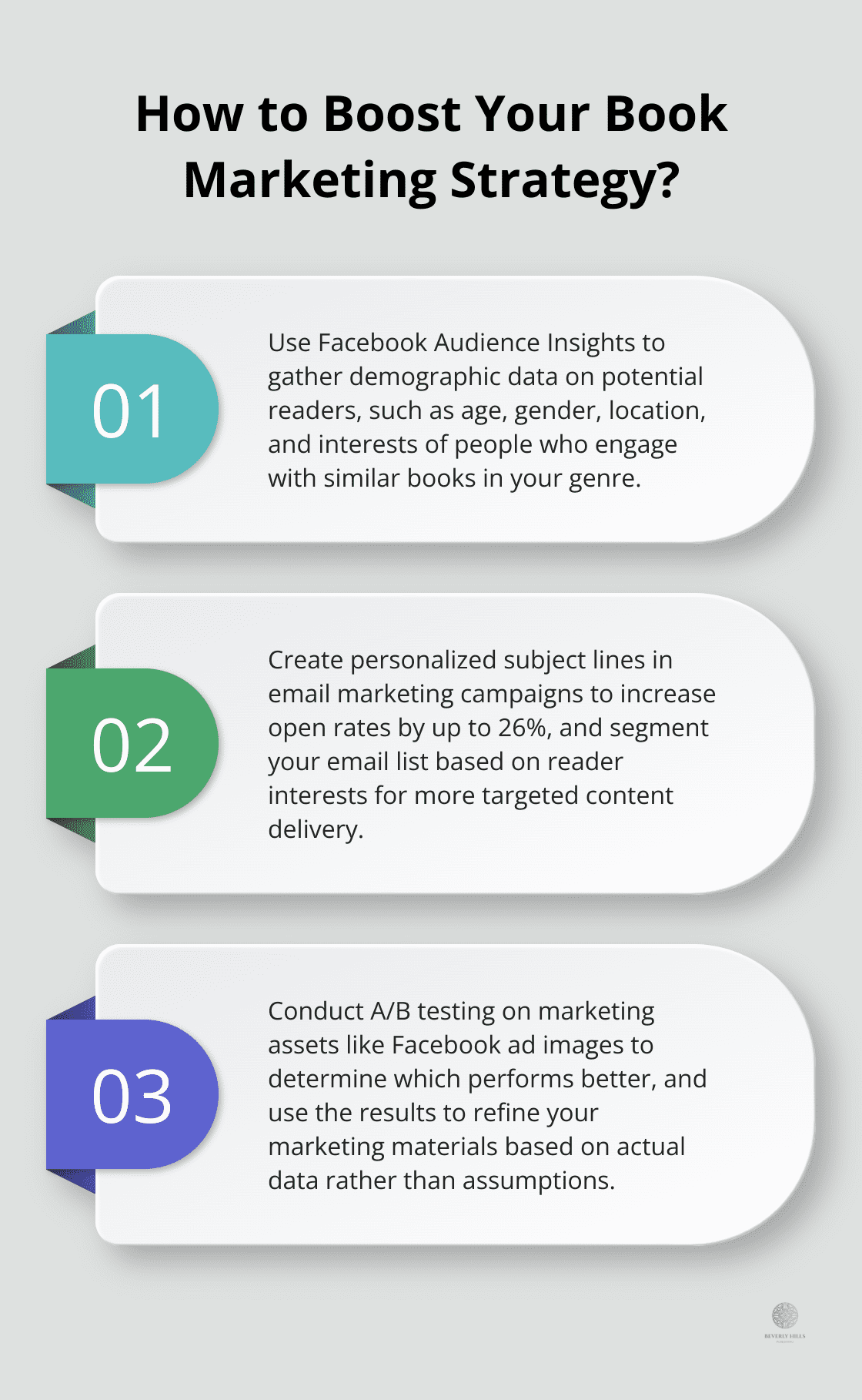
The publishing landscape evolves constantly, so we experiment with different approaches and adapt tactics based on audience response. We set clear goals, track relevant KPIs, and conduct A/B tests to optimize marketing efforts and achieve better results over time. Our integrated approach combines innovative publishing with strategic branding and marketing to elevate author visibility.
At Beverly Hills Publishing, we help authors create impactful marketing campaigns that establish them as industry leaders. We apply techniques and strategies to execute effective book marketing campaigns that drive sales, build author brands, and connect with target readers. Persistence and creativity are essential to stand out in today’s competitive book market.















































































































































































































































